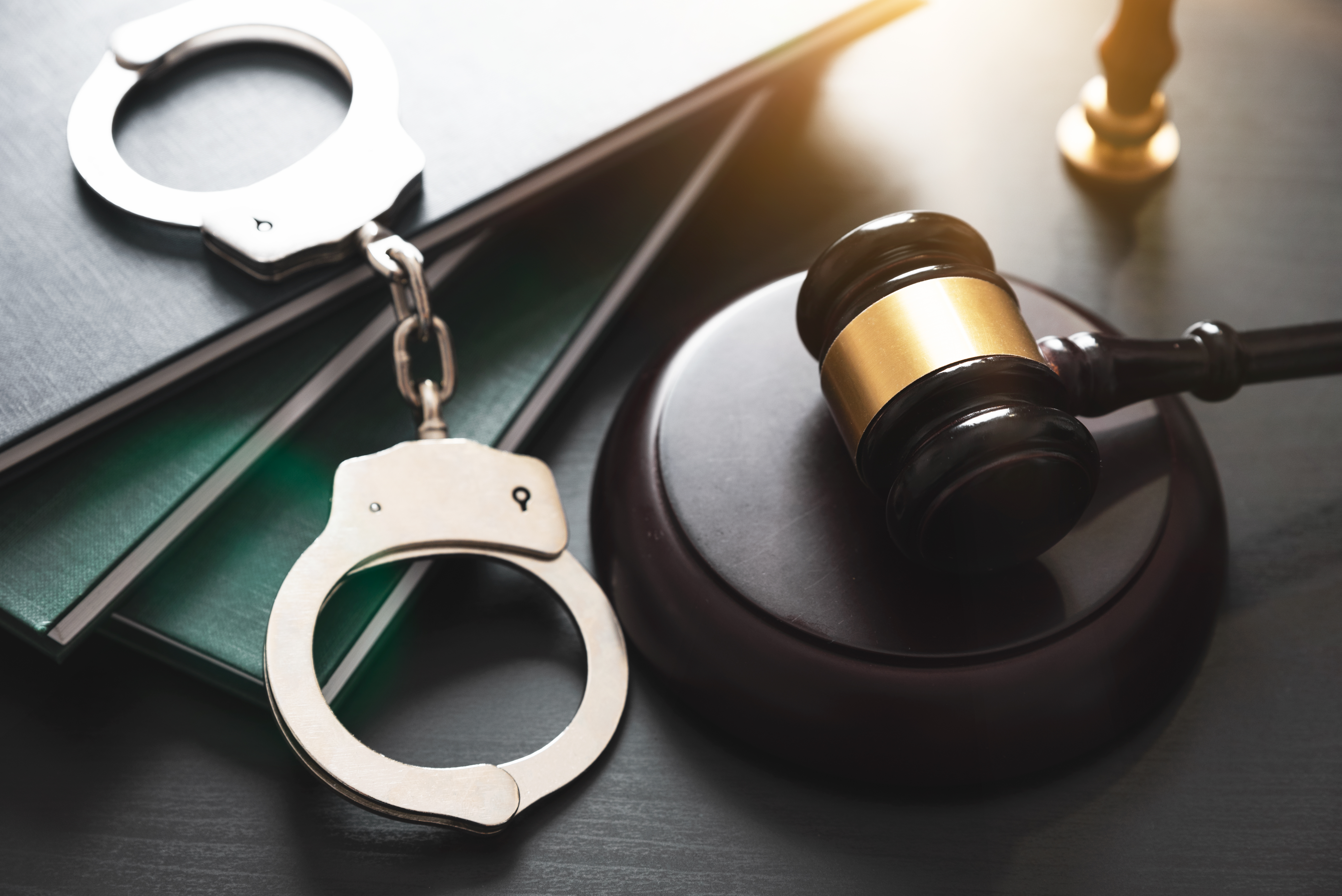- Sequestered jurors can’t go home through the duration of a trial or deliberations, depending on the scope of sequestration
- A sequestered jury is isolated from the public – jurors are kept in a hotel with all meals provided
- Sequestration is unpopular and rare – it’s unlikely that you need to worry about it if you get a jury summons
Sequestered jurors are isolated from the public and outside influences during a trial and/or during deliberations. You’ll be required to stay in a hotel, your meals will be provided, and you will have limited access to your family through means facilitated by the court deputy who has you in their charge. You do not have unfettered access to electronic devices.
The idea is that being distanced from news sources and public opinions helps a jury remain impartial, and gives both parties in high-profile cases a better chance at a fair trial.
Sequestration is unpopular with potential jurors. Because of this, it is very rare. On average, about 3% of juries on high-profile cases are sequestered.
If you’re summoned for jury duty, it’s extremely unlikely that you’ll need to worry about this, but if it’s a possibility, you may be told in advance and given the opportunity to explain why serving would cause you undue hardship. It’s important to mention to the court during jury selection that you may not be able to serve on a jury that is sequestered.
What Happens If You’re on a Sequestered Jury?
Most of our experience with sequestered juries actually comes from movies or TV. Though there are a handful of cases each year in Texas where jurors are sequestered, there are hundreds of trials across the state each week with traditional juries, and the vast majority of those jurors are allowed to go home each night.
There are different degrees of sequestration. Many jurors may be “sequestered” during recesses and meal breaks.
- Sequestered during deliberations, including recesses: This means you’ll have to stay in the jury room during deliberations, including during recesses and breaks. Your meals will be brought to you. You will be allowed to go home each night.
- Sequestered during trial and deliberations, including recesses: This means you’ll be kept in the jury room during any breaks while the trial is ongoing, plus during deliberations. Your meals will be brought to you, and you’ll be allowed to go home each night.
- Sequestered overnight with meals: You will be kept in the jury room during the day, away from the public. At night, you will be transported to a hotel. You will not be allowed to go home for the duration of the trial and deliberations, but you will be allowed to have limited contact with your family. All meals will be provided.
When we refer to a sequestered jury, we mean jurors who are unable to return home until the trial has been resolved. The other two types of sequestration are relatively common and typically aren’t much of a burden for jurors.
Jurors who are sequestered overnight:
- Are usually kept in a hotel, and may have to share a room with another juror
- Can’t watch TV, use social media, or read print media
- Can only use phones under supervision
- Have limited contact with family members
- Are only allowed to discuss the case with fellow jurors, and only during deliberations
Meals will typically either be served in your room or in a reserved part of the hotel. In the evenings, entertainment options may be provided. This includes curated TV screenings in hotel conference rooms, game areas, and some limited reading options.
The idea is that keeping jury members away from the public and press gives defendants a better chance of a fair trial.
It’s very unlikely that you’ll be placed on a sequestered jury against your will. Issues of undue financial hardship, child care issues, upcoming travel, employment concerns, etc. will all be addressed during voir dire.
Voir dire is the jury selection process. Potential jurors are questioned to determine if they can be fair and impartial. Prosecutors, defense attorneys and the judge will ask prospective jurors questions to uncover any biases, preconceived opinions, or conflicts of interest.
If sequestration will cause hardship for you or your family, this is the time to explain.
Can I Refuse to Serve on a Sequestered Jury?
Jury duty is a civic responsibility, and you cannot refuse to serve (at least, not without having to pay a penalty). However you can take steps to make yourself as undesirable as possible. Sometimes hardship at work or home can be enough to get you dismissed.
It is illegal for your employer to fire you for serving on a jury. However, employers are not required to pay you during that time. If you’re living paycheck-to-paycheck, and your employer is unwilling to pay you during your service, mention this during voir dire. It may not disqualify you from sitting on a jury, but it certainly does not hurt to mention any misgivings that you have, including finances. Texas pays jurors a flat rate for each day of jury duty, but it may not be enough to match your wages.
If you don’t have transportation, or you need to assist an elderly family member or are a single parent, you should also mention these during voir dire.
No one on either side wants an unhappy juror who may try to rush deliberations. Be honest about your concerns. However, simply not wanting to do it won’t be enough to get you dismissed. You’ll need to be able to provide evidence of hardship.
READ MORE: What is a mistrial?
Will I Get Paid for the Time I Spend Sequestered?
Sequestered jurors receive the same daily pay as traditional jurors. You will not be paid extra for any time you spend at the hotel, though all hotel and meal costs will be covered by the court. House Bill 3474 increased jury pay to $20 for the first day of service, and $58 for each additional day (This breaks down to $7.25 per hour if you were working a traditional eight-hour shift).
That same law also increased the age of exemption from jury service to 75. Anyone over age 75 can receive a permanent exemption from jury duty. However, any citizen that is qualified to serve on a jury may elect not to claim their exemption.
Why are Juries Sequestered?
Sequestration is more common in cases that are expected to get a significant amount of news coverage, or cases that are expected to lead to protests and jurors could be considered at risk of threats or undue pressure.
The process exists both to protect jurors and ensure a fair trial process for the defendant. Sequestration helps to ensure that the verdict is based solely on evidence, rather than public opinion.
Even if you don’t realize it, your opinions can be influenced by family and friends, or by overhearing others discuss the case outside of court.
Disadvantages
Of course, sequestration has a significant impact on your personal life, particularly with lengthy trials. This can include:
- Increased stress
- Isolation
- Boredom
- Anxiety
- Jurors aren’t compensated for their time outside of the standard daily fee
- Jurors may rush deliberations to get back to their homes and families
Additionally, sequestering jurors is expensive and the costs add up quickly.
Benefits
There are some times when the benefits outweigh the costs and inconvenience. With sequestration:
- Jurors can focus solely on the trial
- There are no worries about outside influences in high-profile cases
- Prevents the possibility of jury tampering
- Jurors feel less pressure to conform
Jury Sequestration Is Not Common
Sequestration is only ordered in the most high-profile cases, typically in cases involving celebrities, unusual circumstances, or law enforcement officers. Because of this, sometimes sequestration can last for a significant period. Keep in mind that jury trials do not typically last as long as those we see on TV.
For example, jurors in the OJ Simpson trial were sequestered for nine months.
Recent Texas cases in which jurors were sequestered:

- Amber Guyer: A white, off-duty Dallas Police Department patrol officer who entered the apartment of Botham Jean, and fatally shot the Black, 26-year-old accountant. Guyger said that she had entered Jean’s apartment believing it was hers. She was convicted of murder. The trial took place from September 23 to October 1, 2019.
- Aaron Dean: A former Fort Worth police officer who was found guilty of manslaughter for the fatal shooting of Atatiana Jefferson, a 28-year-old Black woman, while she was babysitting her nephew in a family home. The trial started on December 5, 2022, and ended on December 15, 2022.
- Gerald Goines: A former Houston police officer who was convicted on two counts of felony murder for his role in a 2019 drug raid. The trial, which took place in September 2024, lasted for a bit more than two weeks.




